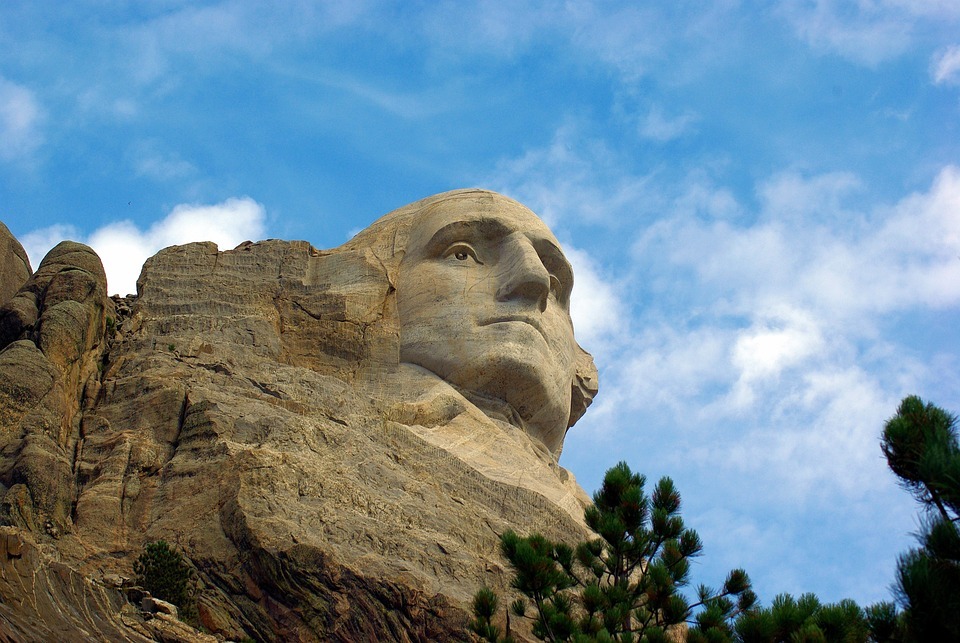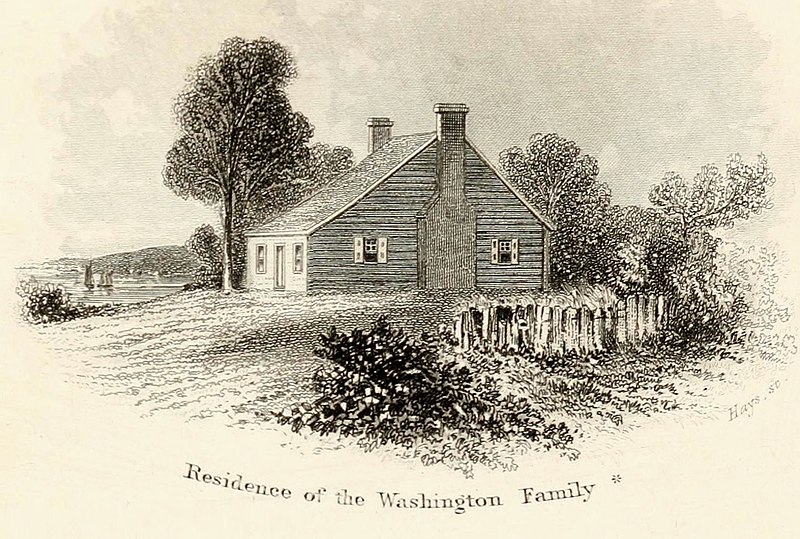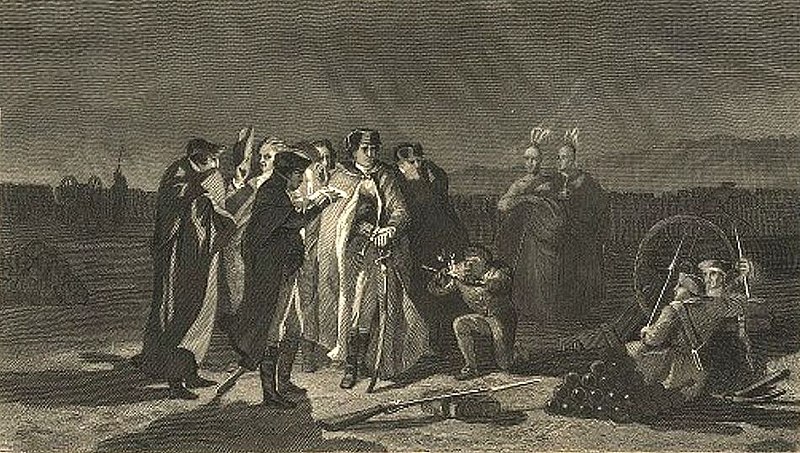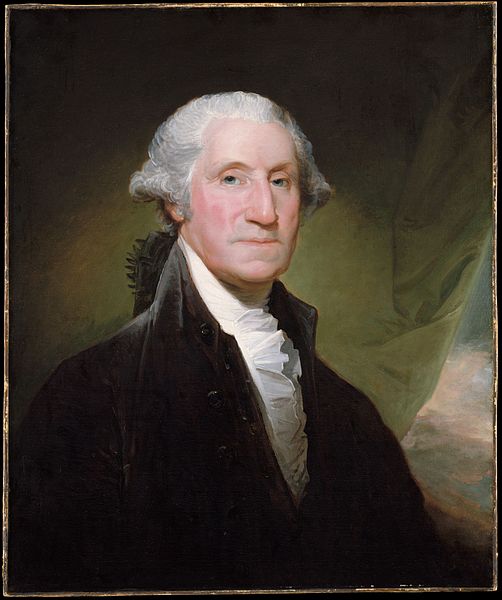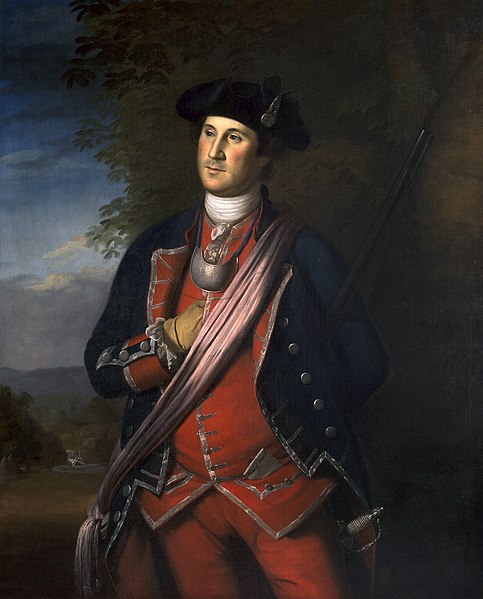As the very first President of the United States and often considered the father of the country, George Washington’s legacy lives on in American consciousness. He was a towering figure whose guidance shaped the early course of the country. It’s easy to see why his legacy as an exemplary leader has stood the test of time. Washington was a born leader because of his charisma, honesty, and ability to plan strategically, qualities that served him well in war and peace. In this respect, he established a benchmark that other world leaders have sought to emulate. What about George Washington made him such an admirable chief executive? The key to understanding this is found in his extraordinary life, his outstanding character, and his unparalleled dedication to the cause of freedom and democracy.
The Early Life of George Washington
On February 22, 1732, in the British province of Virginia, George Washington was born to wealthy Virginia landowners. After migrating from England, John Washington’s great-grandfather amassed 5,000 acres of land in Virginia, including Little Hunting Creek on the Potomac River. George Washington was the oldest of Augustine and Mary Ball Washington’s six children.
His father, a renowned public figure and justice of the peace, had four other children from a previous marriage. In 1735 they settled on Little Hunting Creek, and by 1738 they had relocated to the area around Fredericksburg, Virginia, to the Ferry Farm. George received Ferry Farm and ten slaves as an inheritance after Augustine’s death in 1743.
George went to the Lower Church School in Hartfield and studied mathematics, trigonometry, and land surveying despite not having the same formal education as his older brothers. At age 17, he graduated with a surveyor’s license from the College of William and Mary for his skill as a draftsman and cartographer. Washington spent a month in 1748 with a crew surveying Fairfax’s Shenandoah Valley land; Fairfax became Washington’s sponsor and surrogate father.
Fairfax still named him surveyor of Virginia’s Culpeper County despite his lack of traditional training. Washington then explored the outlying areas, eventually purchasing 2,315 acres, including about 1,500 acres in the Valley, in 1752. Washington went to Barbados with his brother Lawrence in 1751, the only time he ever left the country. Washington leased Mount Vernon from Lawrence’s widow Anne after he died in 1752, and when she passed away in 1761, Washington became the sole owner of the property.
The Start of Washington’s Military Career
President George Washington got his start in the military during the French and Indian War. The war started because the British and the French wanted to take over the Ohio Valley. Lieutenant Governor Robert Dinwiddie appointed Washington as a special envoy in 1753 to demand that French forces withdraw from territory claimed by the British and negotiate peace with the Iroquois Confederacy.
Joseph Coulon de Jumonville, a French general, was assassinated while delivering a diplomatic message to the British to evacuate. Washington was held responsible. The French and Indian War, which this episode sparked, was a subset of the Seven Years’ War.
When the commander of the Virginia Regiment died, Washington received word after a month that he had been promoted to leadership of the regiment and colonel. When South Carolinians led by Captain James Mackay, whose royal commission superseded that of Washington, joined the regiment as an independent company, a power struggle began.
In 1755, Washington voluntarily joined a British invasion headed by General Edward Braddock to drive the French out of Fort Duquesne and the Ohio Country. Following Washington’s advice, Braddock divided the army into a main column and a lightly armed “flying column.”
After being left behind with dysentery, Washington eventually caught up with Braddock at Monongahela, where the French and their Indian allies had set up an ambush. The remaining members of the force could disengage and retreat when Lieutenant Colonel Thomas Gage had Washington rally the survivors and create a rear guard. His hat and coat were both hit by bullets, and two of his horses were shot out from under him. Critics of his leadership in the Battle of Fort Necessity were won over by his bravery under fire.
Washington’s Rise to Presidency
Washington’s ascension to the presidency was not an easy one, but it was one achieved by years of hard work and devotion to his country. Following the American Revolution, Washington withdrew to his Mount Vernon estate, where he wanted to live a quiet life. His leadership abilities, however, remained in high demand, and he was called upon to serve his country once more.
Washington was elected president of the Constitutional Convention in 1787, which was tasked with creating a new constitution for the United States. During this time, he was instrumental in shaping the document that would form the bedrock of American democracy. His leadership abilities, political savvy, and dedication to the greater good aided the convention in navigating the tough process of forming a new government.
Washington was unanimously chosen as the first President of the United States in 1789. His election reflected his broad popularity, as he was admired and respected by people from many walks of life. He faced a number of problems throughout his two terms in power, including a hostile press, political conflict, and economic uncertainty.
Despite these difficulties, Washington was able to unite the country and establish the function of the president in American politics. He established the executive branch, which included the formation of a cabinet of advisers, and helped to define the federal government’s powers and restrictions. His dedication to democracy, ethics, and leadership served to establish the groundwork for the modern American political system.
The Qualities that Made Him an Inspiring Leader
1. Integrity
During the American Revolutionary War, Washington’s integrity was critical to his ability to lead his forces effectively. His dedication to his ideas and readiness to lead by example inspired and earned the respect of his soldiers. Washington’s ability to rally his troops at Valley Forge through the severe winter is a credit to his leadership and character.
Washington’s troops encountered a number of problems during the winter of 1777-1778. They were under-supplied, and many of the soldiers were without sufficient clothing and shelter. The disease was widespread, and morale was low. Despite these challenges, Washington refused to withdraw his troops, instead remaining at Valley Forge throughout the winter. He worked diligently to better their situation, procuring supplies and medical aid and doing everything he could to keep morale high.
2. Strong Believer in Democracy
Washington felt that individual freedom was a basic right and that the government was responsible for safeguarding such liberty. He was a strong believer in democracy and worked relentlessly to construct a government that was of, by, and for the people. He realized that the nation’s strength rested in the hands of its citizens, and he wanted to empower them to play an active role in the country’s governance.
Washington’s leadership style reflected his respect for individual liberty. He did not act like a tyrant or dictator but rather cooperated with people to achieve common goals. He saw that everyone, regardless of rank or status, had something to offer, and he treated everyone with the same respect and dignity.
3. He Built a Solid Connection with His People
Building relationships between a leader and their followers cannot be stressed. Leaders who invest personally in their followers earn their trust and respect, resulting in a more devoted and productive team. A leader who fails to build relationships instead concentrates solely on establishing and enforcing rules risks generating a culture of revolt and contempt.
Washington grasped this concept and strove relentlessly to forge personal connections with his men. He was familiar with their names, experiences, and challenges. Washington made time to talk with them, listen to their worries, and celebrate their victories. He genuinely cared about their well-being and frequently prioritized their demands before his own.
4. Washington Was a Man of Faith
Washington’s profound confidence in God’s providence and his commitment to putting his faith into action was crucial to his leadership style. He recognized as a leader that he was only a steward of power that truly belonged to God and acted accordingly. He considered himself a tool in God’s hands and worked hard to fulfill his responsibilities to the best of his ability while acknowledging that his actions and decisions would have far-reaching effects.
Washington’s great trust in God assisted him in remaining humble and objective as a leader. He knew he was flawed and needed to seek guidance and direction from a higher power. Because of his humility and self-awareness, he could make sensible decisions, admit his faults, and learn from his experiences.
5. He Puts Others Above Himself
Authentic servant leadership is defined by a leader’s commitment to put their followers’ needs ahead of their own. This entails sincerely caring about their well-being and taking the time to understand their particular needs and concerns. A leader can build trust and solid relationships with their followers this way, leading to higher dedication and loyalty.
One of the most critical ways for leaders to display their concern for their followers is to be attentive and sensitive to their needs. This may entail offering assistance, resources, or direction and being willing to listen and empathize with their issues. A leader who can foresee and meet their followers’ demands is more likely to gain their trust and esteem.
In conclusion, George Washington’s leadership style was founded on honesty, faith, and servant leadership. He valued individual liberty and the dignity of all people. Washington’s acts reflected his strong faith in God’s providence and exemplified how true authority comes from serving others. His ability to connect with and inspire his followers to greatness was unrivaled, and his legacy continues to inspire leaders today. Washington’s leadership was about more than just winning battles or political victories; it was about building a better future for his country and his people. He personified what it meant to be an inspiring leader.

